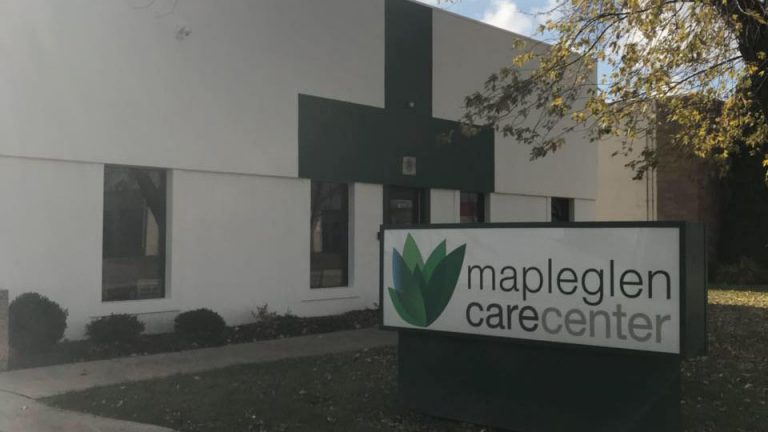Like many small business owners, Amy Manganelli has taken a financial hit since the start of the coronavirus pandemic. So, a few weeks ago, she decided to apply for a small business loan from the federal government.
She was turned down.
Manganelli is the co-owner of Mapleglen Care Center, a cannabis dispensary in Rockford, Ill.
“We’re a legitimate business in every sense of the word, until it comes to some kind of government program that might assist,” she says.
Many small business owners have turned to the federal government for help through funds like the Paycheck Protection Program. But because dispensaries are federally illegal, they have been left out of such federal safety net programs.
Meanwhile, in many states with stay-at-home orders, including Illinois, dispensaries have been deemed essential and have, therefore, continued to operate.
“I’m exceedingly grateful that I’m open, that I am able to maintain my payroll, which is hugely important to me,” Manganelli says. “I don’t want one person going without a paycheck.”
However, Manganelli says she’s frustrated by the disconnect between the state and federal government.
“You’re a legitimate business when it comes to paying taxes,” she says. “You’re not a legitimate business when it comes to any kind of government loan.”
At the beginning of the pandemic, Manganelli made the decision to prioritize her medical cannabis patients. However, with 60% of her sales coming from recreational cannabis users, her business has taken a financial hit. She says she could really use the extra help.
A booming industry
However, in general, the cannabis industry is currently performing quite well. In fact, Illinois reported sales of marijuana products in April were higher than the two months previous. And according to New Frontier Data, which tracks trends across the cannabis industry, consumers have been spending more money on cannabis products since the beginning of the pandemic.
“This is a really stressful time for everybody and people are really looking to find relief,” says Talley Wettlaufer, Head of Retail at Grassroots Cannabis. “Whether it’s relief from their various conditions, whether it’s relief from anxiety, whether it’s the ability to sleep… [they’re] looking for natural ways to find that relief and to medicate.”
Grassroots Cannabis operates dispensaries across nine states, primarily in the Midwest. Wettlaufer says business has been strong over the past couple of months, and they haven’t felt the need for help from the federal government.
She also says they’re accustomed to not having that option.
“We’re used to operating in a world where we have some paradoxes with states and the federal government,” Wettlaufer says. “[We] don’t let that distract us from what our primary purpose is, which is really like serving our customers and patients.”
That paradox is nothing new according to John Kagia, Chief Knowledge Officer with New Frontier Data.
“The disconnect between federal and state law I don’t think has ever been as clear as it has been during this period,” he says.
A critical sector
According to Kagia, when dispensaries are facing hard times, many turn to their investors in the absence of federal assistance.
“It’s important to understand that many of the investors who have invested so heavily in this industry have not been spared this broad economic disruption that we’ve seen,” he says.
However, Kagia says the pandemic has given the industry a legitimate claim to be legalized nationwide.
“At a time when the national and indeed global economy was at its most disrupted, cannabis was considered one of these critical sectors of the economy within the communities which had these industries operational,” he says.
In a post-pandemic world, Kagia says it’ll be hard for officials to discount the importance of the cannabis industry.
For now, though, small business owners like Amy Manganelli are just hoping to keep their doors open.
“We’ll continue to walk this very fine line and do everything we can to keep patients safe and to keep the staff safe,” she says.
Follow Dana on Twitter: @DanaHCronin
9(MDM5MjE5NTg1MDE1Mjk1MTM5NjlkMzI1ZQ000))

